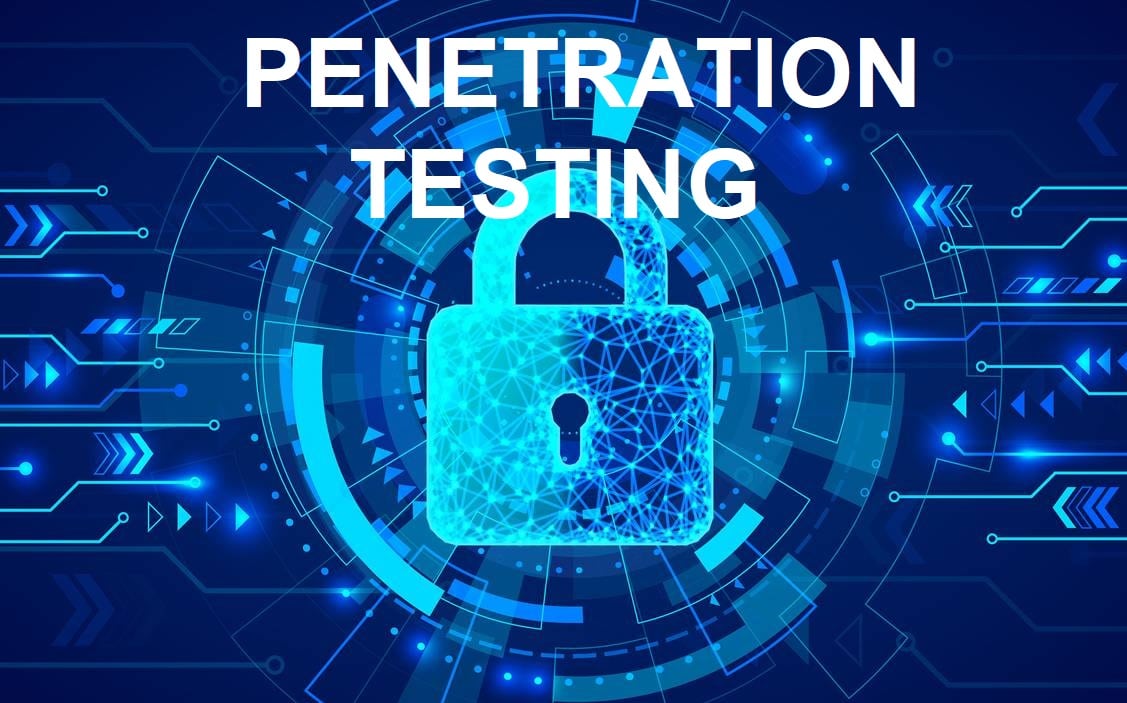Scoping & Planning
We begin by understanding your environment, goals, and assets to define the scope of penetration testing services and ensure full alignment with your cybersecurity strategy and business needs.

Find every open door in your IT infrastructure before an attacker walks through it.
A Network Penetration Test (often called network vulnerability assessment and penetration testing – VAPT) goes far beyond basic port scans.
It reenacts real-world cyberattacks internal, external, and wireless to uncover the exact paths a threat actor could exploit to compromise routers, firewalls, switches, servers, network endpoints, cloud applications, or remote-access services.
Our ethical hacking experts use advanced cybersecurity assessment tools to identify misconfigurations, weak passwords, and unpatched systems before attackers can.
Cybercrime is forecast to inflict over USD 10.5 trillion in global losses every year by 2025, dwarfing even the world’s largest economies.
Organizations that invest in continuous security testing, network risk assessment, and threat-hunting cut the average data breach cost by nearly 27%.
Regular penetration testing services help maintain compliance with ISO 27001, GDPR, and PCI DSS while safeguarding your enterprise network security.

We begin by understanding your environment, goals, and assets to define the scope of penetration testing services and ensure full alignment with your cybersecurity strategy and business needs.
Using industry-standard vulnerability assessment tools and techniques, we identify known security vulnerabilities and configuration weaknesses across your IT infrastructure, applications, and network systems.
We simulate real-world cyberattacks to safely exploit vulnerabilities, testing your network defense, application security, and cloud security posture in a controlled, ethical manner following VAPT (Vulnerability Assessment and Penetration Testing) standards.
All findings are prioritized based on risk severity and exploit impact, and we deliver clear, actionable penetration testing reports designed for both technical teams and senior management to support compliance and risk management.
Once fixes are applied, we perform vulnerability remediation and re-testing to verify that all previously identified security gaps are fully resolved, ensuring continuous improvement in your enterprise network security.
Black-Box
We test your systems from an outsider’s perspective with no prior knowledge of the internal workings just like a real-world ethical hacker would. This black box penetration testing approach uncovers external vulnerabilities in internet-facing assets such as web applications, servers, and cloud infrastructure, ensuring strong cybersecurity posture assessment without bias.
White-Box
With full access to credentials, source code, and architecture diagrams, our white box security testing provides an in-depth review to detect logic flaws, misconfigurations, and vulnerabilities in code that attackers could exploit. This mode supports secure software development and enhances application security testing across critical systems.
Grey-Box
A balanced approach where we have partial knowledge of the system simulating an insider threat or a privileged attacker with limited access. Grey box penetration testing helps identify internal network vulnerabilities and hidden issues that aren’t visible to the public but could compromise enterprise network security if left unchecked.
All testing strictly adheres to NIST SP 800-115, PTES (Penetration Testing Execution Standard), and CIS Security Benchmarks, ensuring globally recognized cybersecurity compliance and penetration testing standards are maintained throughout the assessment process.
Executive Risk Reports
A few-page, C-suite-ready cybersecurity risk report providing a concise overview of your penetration testing results, business impact, and key risk management insights.
Detailed Vulnerability Matrix
A comprehensive vulnerability assessment matrix including CVSS scores, exploit paths, and annotated screenshots aligning with industry-recognized penetration testing standards and frameworks.
Remediation Playbook
A detailed cybersecurity remediation plan with step-by-step instructions, designed to guide IT security teams in addressing vulnerabilities effectively and improving network security posture.
Free Retest
After remediation, we perform a vulnerability re-assessment to verify every fix at no additional cost - ensuring your enterprise network security remains fully validated and threat-resilient.
Prevent Data Breaches & Downtime by closing exploitable gaps through proactive penetration testing services and vulnerability management.
Meet & Prove Compliance with major cybersecurity regulations including ISO 27001, PCI-DSS, SEBI, RBI, and GDPR compliance audits, ensuring alignment with global information security standards.
Reduce Outage Risk & Cost through prioritized vulnerability remediation and continuous risk assessment.
Enhance Reputation & Trust with customers, partners, and investors through demonstrable cyber resilience and transparent security reporting.
Optimize Security Spend by focusing budgets where cyber risk exposure is highest, leveraging penetration testing reports and threat intelligence insights for smarter decision-making.


Explore answers to common questions
about our Network Penetration Testing services and practices.
It’s recommended to conduct a network penetration test at least once a year, or whenever you deploy major IT infrastructure changes, upgrade systems, or modify user-access policies. Regular cybersecurity testing ensures your network security posture stays resilient against emerging threats.
No. All penetration testing services are performed safely in mirrored environments or low-impact testing windows, with rollback and recovery plans in place. Our ethical hacking experts ensure zero downtime for your critical business operations.
A vulnerability scan automatically lists known weaknesses, while a penetration test goes further by actively exploiting them to uncover real business impact, security misconfigurations, and potential data breach risks. Combining both provides complete vulnerability management coverage.
Typical penetration testing engagements finish within 5–15 business days, depending on the testing scope, network size, and cybersecurity complexity. Larger infrastructures may include vulnerability assessment reports and post-remediation validation.
Book a 30-minute cybersecurity discovery call and receive a tailored penetration testing proposal within a few hours. Our experts will help you understand your network vulnerabilities, compliance gaps, and how to strengthen your overall cyber defense.